In a year of so much hardship, I know many of us in the rescue mission world have been blessed by the significant generosity and compassion of donors within our communities.
It’s been just over a year since life-transformation ministries had to completely revolutionize the way they help those who need it most. And despite so much uncertainty in their own lives, donors have been there every step of the way, answering the call to give.
Now that things have begun to slow down, vaccines have started to roll out and the world is reopening, I think it’s important to stop and reflect.
We know that donors have been giving to missions in record ways. But who are these donors? How do they differ from a traditional or disaster donor? And most importantly, how can you ensure they’re effectively welcomed into your mission so that you can begin to build lasting relationships that extend beyond a one-time gift?
RKD Group recently conducted a Missions COVID Donor Analysis study to find out.
Before we share a few of our findings, let’s talk through some business rules. We isolated gifts given between March 1 and August 31 to avoid any intentional acquisition efforts. Our analysis included more than 10,000 new COVID donors, 6,000 reactivated donors and 100,000 core donors from missions across the United States.
Demographics
For demographic purposes, COVID-acquired donors were compared to core donors (those who had given consecutively for the past two years).
When we look at both online and offline categories, we find that the majority of donations during the pandemic were given by females. In addition, overall donor age skewed slightly younger in both channels.
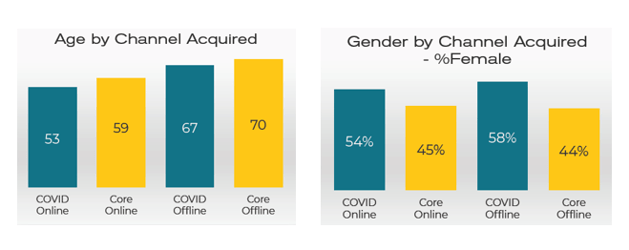
New Donors
The chart below probably doesn’t come as a surprise. In each month from March to August of 2020, new donors almost doubled when compared to 2019, with an overall increase of 170%.
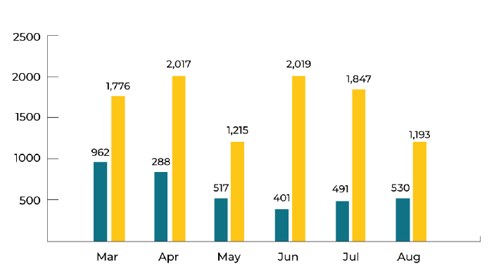
But, when we look under the hood, we see that these new donors are making second gifts – and even third, fourth and fifth gifts – at much higher rates than a traditional disaster donor would. 33% of COVID-acquired donors have already given two gifts or more in less than a year. This tells us that COVID donors are much more committed than disaster donors, which is good news for retention moving forward.
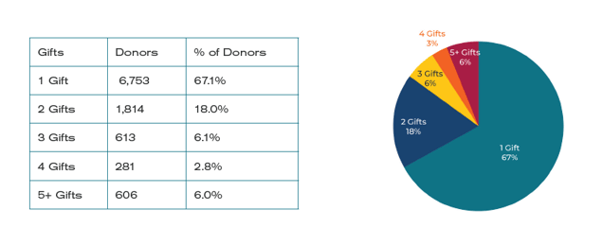
Reactivated Donors
Finally, let’s examine a few of our findings from reactivated donors. In 2020, there was a 114% increase in 25+ lapsed reactivated donors.
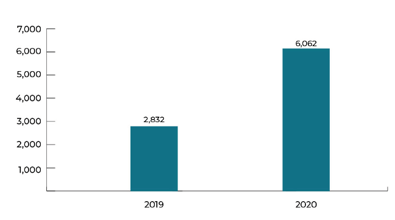
Just like with new donors, we found that reactivated donors were converting at much higher rates than in years past, with 17% of them having given two or more gifts since March 1.
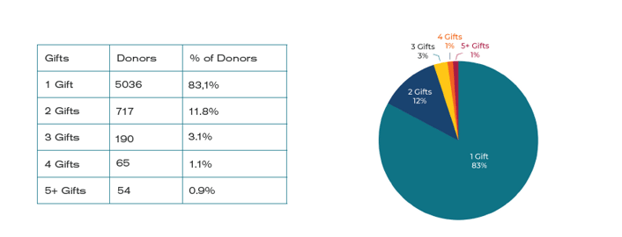
What does this data mean for you?
These donors are different.
They look different demographically. They choose to give online more frequently. And – most importantly – they choose to give again and again!
Are these donors different because of this unique time, or is this an indicator of a transformation? Are these donors a new generation of givers? And if these donors are behaving differently, are you adapting your strategies or still doing what you’ve always done?
With this information in your pocket, you can make a strategic plan to steward and retain COVID donors for years to come.
Download Your Copy Now
We’ve just scratched the surface of our findings in this blog. Download the full Missions COVID Donor Analysis to unlock the rest of the results. Plus, gain access to the strategy behind our Spring Multichannel Impact Report, with details on target audiences, key statistics, messaging ideas, creative examples and more.





Leave a comment: